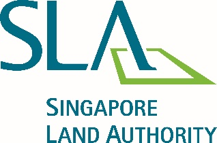Publicly Listed Housing Developers with Substantial Connection to Singapore to be Exempted from Qualifying Certificate Regime
 |
 |
1. The Ministry of Law will allow for the exemption of publicly listed housing developers with a substantial connection to Singapore from the Qualifying Certificate (QC) regime.
2. Under the Residential Property Act (RPA), any housing developer that is not considered a Singapore company has to apply for a QC when it purchases residential land for development, other than from the Government. Under the QC regime, it is required to complete the development within five years and dispose of all units within two years of completion. This is to ensure that such housing developers build and sell the residential units in a timely manner, and do not hoard and speculate in residential land.
3. A housing developer that is a Singapore company is not subject to the QC regime. Currently, a Singapore company is defined in the RPA as one that is incorporated in Singapore, and all its directors and shareholders are Singapore citizens or Singapore companies. This definition however means that publicly listed housing developers that are essentially Singaporean will not be considered a Singapore company. If they have one foreign shareholder, they will not be considered a Singapore company.
4. The Ministry of Law will allow publicly listed housing developers with a substantial connection to Singapore to be treated as a Singapore company within the meaning of the RPA when they acquire residential land for development. This will better align the QC regime and the objectives of the RPA.
5. Publicly listed housing developers can apply for exemption from the QC regime, on the basis that they have a substantial connection to Singapore. The application will be assessed by reference to the following criteria:
a. Incorporation in Singapore;
b. Primary listing is on the Singapore Exchange and principal place of business is Singapore;
c. The chairperson and the majority of the company’s board are Singapore citizens;
d. A significantly Singaporean substantial shareholding interest[1] in the company; and
e. Track record in Singapore.
6. The changes will be implemented with immediate effect and reflected in legislation later this year. Applications may be submitted to the Controller of Residential Property. For more information on application procedures, please contact the Singapore Land Authority (SLA) at SLA_Enquiry@sla.gov.sg or 1800-323-9829. The application form can be obtained from SLA’s website at www.sla.gov.sg.
7. The Government is making no changes to the existing property market cooling measures, which were put in place to keep private residential property price increases in line with economic fundamentals. In particular, all housing developers continue to be subject to the prevailing Additional Buyer’s Stamp Duty (ABSD) regime. The regime requires, among other conditions, developers to sell all units in a residential project within a specified timeline, failing which they will be subject to the ABSD.
MINISTRY OF LAW AND SINGAPORE LAND AUTHORITY
6 FEBRUARY 2020
[1]This is defined as either (a) substantial shareholders who are Singapore citizens, Singapore companies or Singapore Government entities holding at least 50% interest in the voting rights and issued shares in the company; or (b) the largest single substantial shareholder is a Singapore citizen, Singapore company or a Singapore Government entity and holding at least 25% interest in the total voting rights and issued shares in the company, and the largest single foreign substantial shareholder holds not more than 25% of the voting rights and issued shares in the company. Substantial shareholders refer to persons or companies who have an interest in at least 5% of the votes attached to all the voting shares in the company or class of shares.
